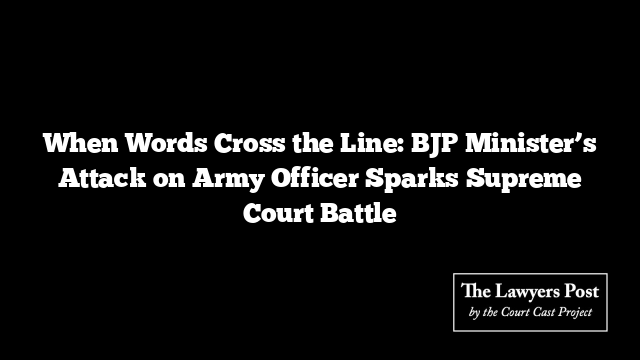In a dramatic legal escalation, Madhya Pradesh Cabinet Minister Kunwar Vijay Shah has rushed to the Supreme Court, challenging a stern order from the state High Court demanding a criminal case against him. The trigger? His incendiary remarks targeting Colonel Sofiya Qureshi, an Indian Army officer lauded for her leadership in the recent Operation Sindoor.
The Madhya Pradesh High Court didn’t mince words, condemning Shah’s comments as “language of the gutters” after he allegedly referred to Colonel Qureshi as a “sister of terrorists.” This stinging rebuke came after Shah’s controversial statement at a public gathering in Raikunda village, where he declared, “Those who widowed our daughters, we sent a sister of their own to teach them a lesson.” The veiled insult was widely interpreted as a direct jab at Colonel Qureshi, who had played a key role briefing the media on the cross-border retaliatory strikes following the deadly Pahalgam terror attack that claimed 26 civilian lives.
The court made its position crystal clear: such remarks are not just a personal attack on a decorated officer but a dangerous affront to the armed forces themselves. Justice Atul Sreedharan issued a sharp warning to local police, instructing them to register an FIR without delay, vowing to “bring hell down” if the order was ignored.
Despite Shah’s subsequent apologies, public outrage swelled with calls for his removal. The legal wheels moved swiftly — by the night of May 14, the Manpur police had formally booked Shah under multiple provisions addressing threats to national sovereignty and promoting discord among groups.
Colonel Sofiya Qureshi, whose achievements span leading an Indian UN peacekeeping contingent to spearheading technological advances within the Army’s Signal Corps, now finds herself at the center of this fiery political and legal storm — a stark reminder that words, once unleashed, can demand a reckoning far beyond the speaker’s intentions.





